Kaupapa Vegan: Summer Wright

The Threads of Social Justice: An Interview with Summer Wright
Summer Wright (Ngāti Maniapoto, Pākehā) is passionate about social, food, and climate justice. She is currently pursuing her PhD at Massey University, exploring relationships Māori businesses have with plant-based kai. In this interview, she speaks to Philip McKibbin about her journey toward veganism, her PhD research, and her hopes for the future.
Philip McKibbin: How did you come to veganism?
Summer Wright: I was about 18 or 19, and I was spending a lot of time online — as teenagers do these days — and I saw a really interesting-looking thumbnail on YouTube. I thought, ‘What’s that?’ It ended up being footage of factory farms, so I binged slaughterhouse footage, ‘cause I was so curious, and I’d never really been exposed to that aspect of making food. That upset me. I was surprised that I had never really critically considered that aspect of eating animals.
Eventually, I heard about veganism, and it sat well with me, so I went vegan. Then I became more involved in different vegan circles in Aotearoa. From there, I connected the way we treat animals to the way we treat the environment. I felt it was a similar social attitude that was leading to the exploitation of both. Later, I went on to study Health Science, and so I started to connect human health to that picture, as well.
You are currently pursuing your PhD. What is your research about?
My PhD is seated in a wider programme, called ‘Te Rangahau Taha Wheako mō ngā Kai o Āpōpō’, or ‘The Consumer Dimensions of Future Foods’, at Massey University. The overall project is exploring people’s — as consumers — relationships with plant-based alternatives to meat, as in what people do and don’t like plant-based alternatives, as well as sensory factors, and what those are for liking and not liking.
My PhD has a little bit less of a consumer science angle, but it’s exploring the relationship Māori businesses have with plant-based products — what this currently looks like, and what it could look like in the future. So, I’ve looked at key challenges and opportunities for Māori to make healthy and sustainable plant-based food. I’m about one year in.
What is the relationship between food and social justice?
Food spans across all of society. It’s always been central to human civilisations as a means of survival, prosperity, culture; and because food is so fundamental to our lives, it impacts so many aspects of society, from land ownership, to the organisation of labour, and the way we treat nature and animals. So, food becomes intertwined with many threads of social justice. And that’s why it interests me — because, through food, you can link so many issues, but also, in that way, come to solutions. If you look at solutions to food systems, you can also start to solve the climate crisis, the animal rights problem, and improve human well-being, too, through that.
Why is it important that Māori lead the development of sustainable food systems?
Firstly, Māori already have a blueprint for sustainable and healthy food production that’s locally specific, that’s relevant to the ecosystems and the knowledge surrounding them. Having a place-based idea of what food production could and should look like is really important. And then, because food is so deeply connected to our society, it’s also interlinked with self-determination. If we want Aotearoa to have a just future, our food system needs to be just, and it won’t be just if Māori aren’t at least co-leading that.
I think Māori have a significant stake in food systems. Our landscapes have been so deeply affected by the way that food systems have changed. They’ve been dominated by pastoral farming and industrial activities. And so, I think Māori have a huge role to play in the just transformation of food systems. But then, also, Māori would stand to benefit hugely, as the tangata whenua, from a healthy landscape, and from a healthy food system.
What are your hopes for the future?
Things are changing so quickly. It’s hard to know what the future might look like in even 10 or 20 years. I hope, in general, that we can live in a healthy and just society. I don’t know if that’s too big of an ask. I hope that we can begin to address some of these systemic issues that we’re facing — like food, climate, health, animals. I hope that I’ll finish up my PhD and have something interesting to share, and I can then go on to work in food systems in some way, perhaps through government, or through a non-government organisation. And, of course, I want to continue to foster my Māoritanga, and my te reo, and continue to explore what ethical eating looks like at both a personal and bigger level.
Aotearoa Vegan and Plant Based Living Magazine
This article was sourced from the Spring 2022 edition of The Vegan Society magazine.
Order your own current copy in print or pdf or browse past editions.
Disclaimer
The articles we present in our magazine and blog have been written by many authors and are are not necessarily the views and policies of the Vegan Society.
Enjoyed reading this? We think you'll enjoy these articles:
Sausage Rolls
Liked this? We think you’ll enjoy these recipes: Smashed Avocado Toast Smashed Avocado Toast Lentil and Apple Salad Lentil and Apple Salad …
Palak Tofu
Liked this? We think you’ll enjoy these recipes: One Pot Quinoa One Pot Quinoa Takihi Takihi 1 2 3 … 5 Next …
Angel Food Cheese Ball
Liked this? We think you’ll enjoy these recipes: Chipotle Cashew Dip Chipotle Cashew Dip White Bean and Potato Soup White Bean and …




